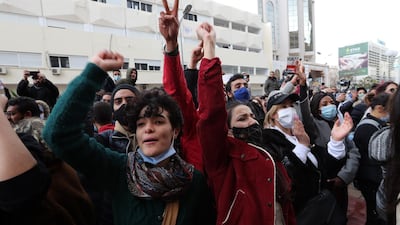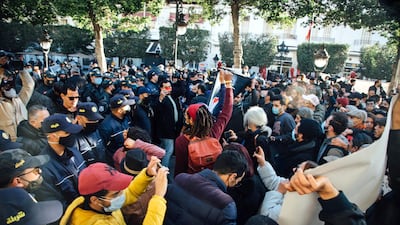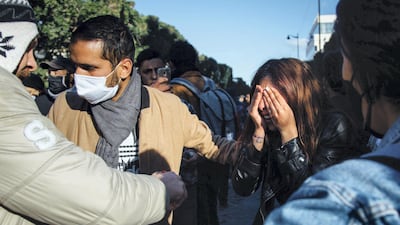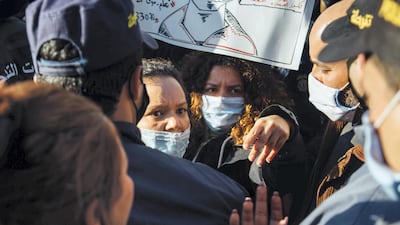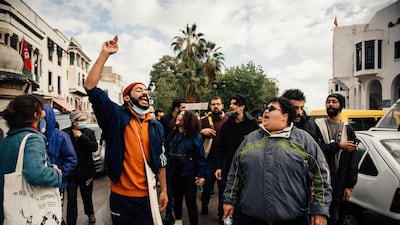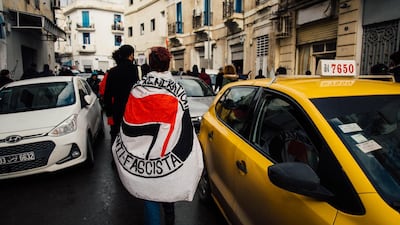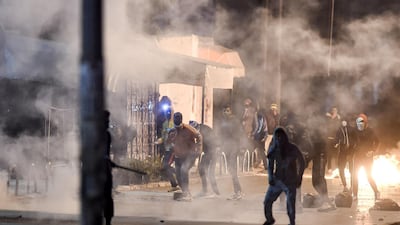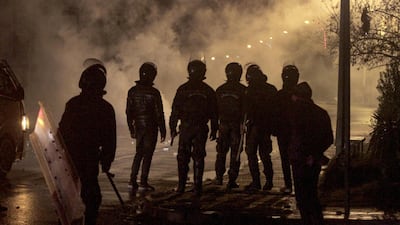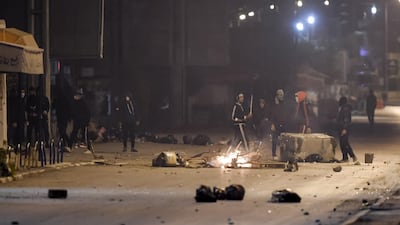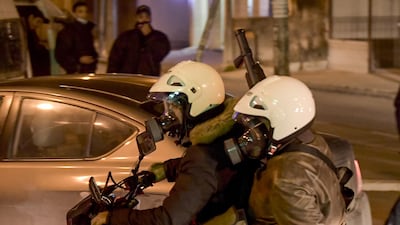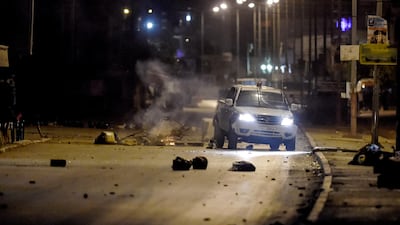Hundreds of protesters joined anti-government demonstrations in the Tunisian capital as a curfew and a ban on public gatherings were extended.
Demonstrators marched on Avenue Habib Bourguiba in Tunis and demanded economic change and the release of those arrested during clashes with police over the past week.
Tunisia has been hit by the economic effects of the coronavirus pandemic, with its tourism industry grinding to a halt.
More than one in three people are unemployed, according to the World Bank, and Tunisia's gross domestic product shrunk by 9 per cent while consumer prices continue to increase.
Protesters denounced what they said were broken economic promises from the government.
On Saturday, security forces struggled to contain demonstrators.
“No more fear, the street belongs to the people,” shouted protesters.
The crowd also chanted the slogan of Tunisia’s uprising between 2010 and 2011: “Employment, freedom, dignity.”
Police fired tear gas to disperse the crowd after two hours – the time authorised for the protest.
According to new virus rules announced on Saturday, gatherings will be prohibited in public areas until February 14 and the country's existing 8pm-5am curfew will also be extended until then, Tunisian Health Ministry spokeswoman Nissaf Ben Alaya said.
A group of about 100 protesters marched through the centre of Tunis last Monday, calling for government reform and for both Prime Minister Hichem Mechichi and Speaker of Parliament Rached Ghannouchi to step down.
About 1,000 people have been arrested during the recent protests, according to estimates by human rights groups.
The International Monetary Fund expects Tunisia's GDP growth to rebound to 3.8 per cent this year as the effects of the economic crisis caused by the pandemic begin to wane.
